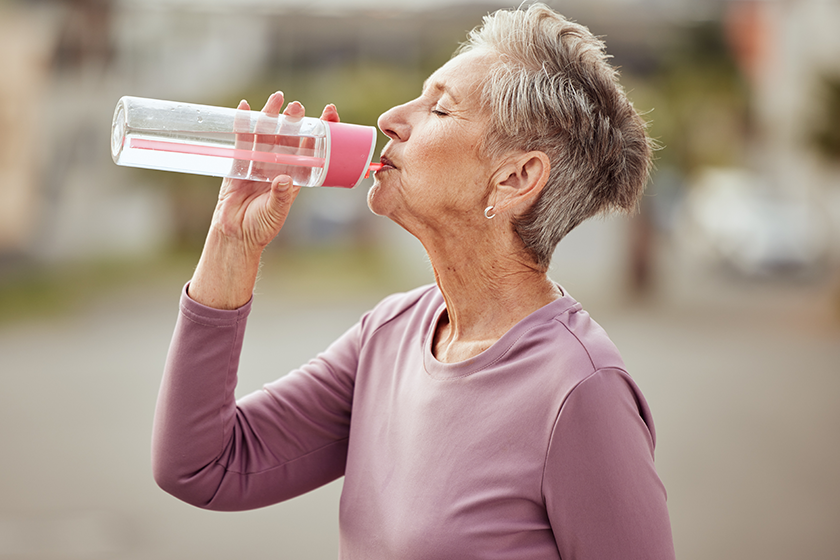As we age, our bodies go through numerous changes, and one of the most critical aspects of maintaining good health is staying hydrated. Proper hydration is essential for people of all ages, but it becomes increasingly important as we enter our resident years. In this article, we will explore the question of how much water to drink daily as a resident and delve into the importance of staying adequately hydrated in various senior living options.
The Importance of Hydration in Senior Years
Water is the elixir of life, and its significance cannot be overstated. It plays a vital role in various bodily functions, including digestion, circulation, temperature regulation, and waste elimination. In resident years, maintaining proper hydration becomes even more crucial due to age-related changes in the body. Dehydration can lead to a range of health issues, including urinary tract infections, kidney stones, and an increased risk of falls. Therefore, understanding how much water to drink daily is essential for residents looking to maintain their well-being.
Factors Influencing Hydration Needs
The daily water intake for residents is not a one-size-fits-all equation; it depends on a range of factors unique to each individual. Age is a significant factor, as our bodies change with time. Older adults often experience a reduced sense of thirst, which can lead to insufficient fluid consumption. This decreased thirst sensation can be further complicated by certain medications commonly taken by residents, which may affect the body’s ability to regulate fluid balance.
Gender also plays a role, as men typically have higher muscle mass and metabolic rates than women, leading to different hydration needs.
Seniors who are more physically active or engage in regular exercise will require more fluids to replace the sweat lost during exertion.
Climate is a notable external factor. Seniors living in hot and humid environments lose more fluids through perspiration and may need to increase their water intake to avoid dehydration. On the other hand, individuals residing in colder climates may not feel as thirsty but still need to hydrate adequately.
Underlying medical conditions can significantly impact hydration needs. Seniors with conditions such as diabetes, kidney disease, or heart problems may require specific hydration plans tailored to their health conditions.
Recommended Daily Water Intake for Seniors
While there is no one-size-fits-all answer to how much water residents should drink daily, general guidelines can help determine an appropriate range. The National Academies of Sciences, Engineering, and Medicine recommends about 2.7 liters (or approximately 9 cups) of total water intake per day for women aged 70 and older. Men in the same age group should aim for about 3.7 liters (or approximately 13 cups) daily. This includes all beverages and moisture-rich foods like fruits and vegetables. However, these figures can vary, and it’s important to consult with a healthcare professional to determine your specific hydration needs.
In various retirement settings, whether it’s independent living communities, assisted living centers, or nursing homes, it’s crucial for residents to prioritize hydration. Here are some helpful tips for residents to maintain adequate hydration:
Firstly, keeping a water bottle within easy reach can serve as a visual reminder to drink more frequently. Many assisted living communities offer convenient access to water stations, making it even easier to stay hydrated.
Secondly, it’s essential for residents or their caregivers to monitor daily fluid intake to ensure hydration goals are met, which can be particularly beneficial for those with memory issues.
Additionally, incorporating hydrating foods into the diet is a smart choice. Fruits and vegetables with high water content, such as watermelon, cucumbers, and oranges, not only contribute to hydration but also provide essential nutrients.
Establishing a regular schedule for drinking water can help maintain consistent hydration throughout the day. Seniors can set alarms or reminders to prompt them to take regular sips, ensuring they meet their hydration needs.
Lastly, residents with chronic medical conditions or those taking medications that affect fluid balance should seek personalized hydration recommendations from their healthcare providers to ensure their specific needs are met. These tips can help residents in various resident living options maintain proper hydration, promoting overall health and well-being.
Prioritizing Hydration for Seniors
In your resident years, staying hydrated is a crucial component of overall health and well-being. Knowing how much water to drink daily can help prevent dehydration and its associated health issues. Remember that hydration needs vary from person to person, so it’s important to consider individual factors when determining your optimal water intake. Whether you’re living independently or in a retirement community, prioritizing hydration is essential for a happy and healthy retirement. Consult with a healthcare professional to tailor your hydration plan to your specific needs, and make hydration a top priority as you enjoy your resident years to the fullest.







